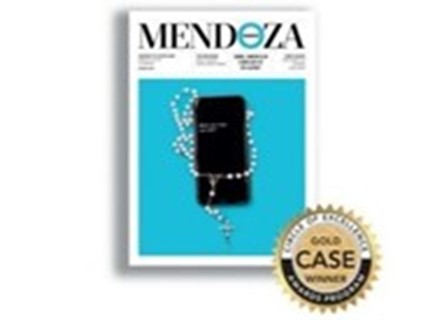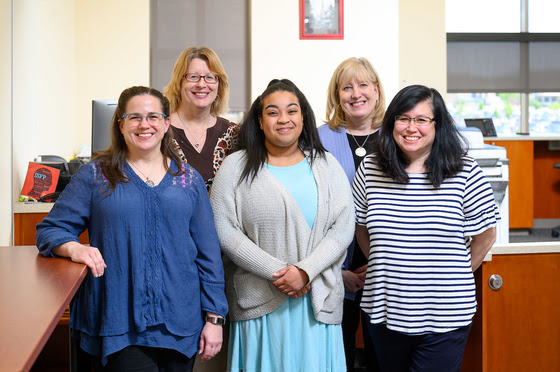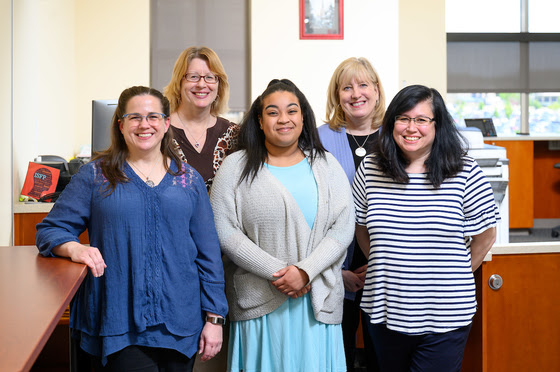In the coming weeks, six of our staff colleagues will retire from Mendoza. Combined, they represent more than 168 years of service to the University. Following are farewell comments from three of them – Sharon Clancy Orban, Paul Slaggert and Phil Corporon. Next week, we’ll feature three more – Marlene Wasikowski, Judy Truitt and Karen Casey.
Sharon Clancy Orban
Current Title/Department: Academic Advisor, Office of Undergraduate Studies
Starting Title/Department: Secretary, Department of Marketing
Started at Mendoza/ND: 1969
“For many years now, I have missed Yusaku Furuhashi, Vince Raymond and Sam Gaglio, my former bosses. Now I will add to that list Dale Nees and the Undergraduate Advising team in Mendoza 101. There are others too numerous to list. Had I not worked for and with the best, I surely could not have stayed 50 years! As goes an old Irish proverb: ‘However long the road, there comes a turning.’ As I take that turn in my road, I wish you all God's blessings on your roads as He has blessed me on mine.”
Paul Slaggert
Current Title/Department: Director, Stayer Center for Executive Education
Starting Title/Department: Director, Non-Degree Programs, Executive Education
Started at Mendoza/ND: 2001
"One of my favorite things to do is to welcome people to Notre Dame. It has been my privilege to do this for the past 18 years. I will miss having the opportunity to continue to be the one representing the University when we welcome people to campus for the first time."
Phillip Corporon
Current position: Manager, Mendoza IT Operations
Previous Positions:
Nine years at the College of Engineering, Dean’s Office, and the Department of Computer Science and Engineering
Senior Computer/Electronic Specialist, 1986-1995
24 Years at the Mendoza College of Business, Information Technology
1995 - 2000: Systems Engineer
2000 - 2006: Web Project Manager
2006 - 2012: Director of Web Technologies
2012 - 2019: Manager, Operations Group: 2012 - present
*January 2018 - April 2018: Interim Director, Mendoza IT
“I'm forever grateful that Notre Dame has kept me busy for over 33 years, to have worked with such extraordinary people, and to have contributed to something much greater than oneself. As a member of the University community, it's an honor to have played some small part to inspire curiosity and seek knowledge, and to help make the world a better place for now and the generations to come.”
I am most grateful for their many contributions, through which they have enriched our community with their expertise, commitment to service, faithfulness, friendship, caring and humor. They will all be missed.
In Notre Dame,
Martijn
 The latest biannual edition of the Mendoza Business magazine was distributed to approximately 25,000 alums, faculty, staff, students, prospective students and faculty, and friends of the College. As a publication, the magazine presents a comprehensive view of Mendoza, from our alumni stories to research to thoughtful pieces about significant trends in business and society.
The latest biannual edition of the Mendoza Business magazine was distributed to approximately 25,000 alums, faculty, staff, students, prospective students and faculty, and friends of the College. As a publication, the magazine presents a comprehensive view of Mendoza, from our alumni stories to research to thoughtful pieces about significant trends in business and society.




